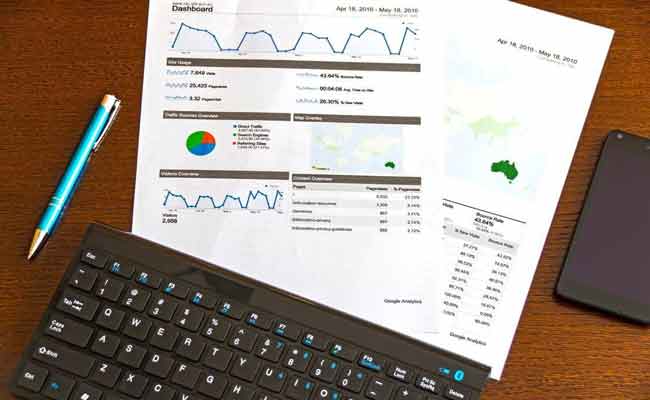Why Account Receivable Management Is Important?
Hello friends how are you all? Today we are going to talk about Why Account Receivable Management Is Important? Accounts receivable management is an important part of the overall financial health of any business. It’s key to ensure that your customers can pay for goods or services within a reasonable timeframe, which allows cash flow to remain steady and consistent. But how do you know whether your accounts receivable management system is working efficiently?
To answer this question, it’s essential to consider exactly why proper accounts receivable management is so important in the first place. In this blog post, we will go over the different aspects of effective accounts receivable management and provide tips on how you can improve yours.
What Is Account Receivable Management?
Accounts receivable management is the process of monitoring and collecting customer payments for goods or services. The goal of accounts receivable management is to ensure that payments are received on time to keep cash flow steady and businesses profitable. It involves several processes, including invoicing customers, tracking payments, following up on late or missing payments, issuing statements, setting credit limits, and extending payment terms if necessary.
By having effective accounts receivable management policies in place, businesses can reduce their risk of bad debt and maintain financial stability. With this kind of control over customer accounts, it’s much easier to manage cash flow and avoid potential issues with unpaid invoices. Ultimately, strong accounts receivable management helps businesses stay on top of their finances and remain profitable.
10 Reasons Why Accounts Receivable Management is Important
1. Effective Cash Flow Management
Accounts receivable management services help ensure that your cash flow is managed effectively and efficiently. By properly monitoring who owes you money, you can be sure to keep track of payments and make sure they are paid on time.
2. Improved Customer Service
Accounts receivable management makes it easier to provide customers with better service by ensuring that payment terms are clear and updated in a timely manner. This ensures that the customer’s satisfaction level remains high while avoiding any disputes or misunderstandings between yourself and your customers.
3. Reduced Costs
Accounts receivable management can save you both time and money by streamlining the process of collecting payments from clients and managing accounts accordingly. This form of financial organization also reduces the amount of time spent on accounting-related tasks, allowing you to focus more on growing your business.
4. Enhanced Credit Decisions
Knowing who owes you money and how much they owe allows businesses to make better decisions when it comes to extending credit. With an effective accounts receivable management system in place, businesses can assess the risk associated with a specific customer or client before deciding to extend them further credit.
5. Reduced Bad Debts
An efficient accounts receivable process helps reduce bad debts by keeping customers informed about their payment status promptly and providing them with payment options that work best for both parties. This ensures that debtors are not taking advantage of loose terms or late payments, which can lead to financial losses for the business.
6. Improved Financial Visibility
Accounts receivable management provides businesses with a clear understanding of who owes them money and how much. This helps businesses stay up to date on their finances, ensuring that any changes in customer payment patterns can be identified immediately and addressed accordingly.
7. Enhanced Cash Forecasting
Accurate accounts receivable tracking allows businesses to forecast their future cash flow by giving them insight into how much money they are likely to receive from customers within the next month or even year. This enables them to plan for future expenditures more effectively and accurately.
8. Better Information Reporting
With effective accounts payable outsourcing services, businesses can quickly generate comprehensive reports so they’re always up to date with their financial standings. This type of reporting can also be used to ensure compliance with tax laws or any other regulations associated with accounts receivable tracking and management.
9. Improved Collections Process
By having a clear picture of who owes money and how much, businesses can improve their accounts receivable collection process by taking prompt action whenever payments are overdue. This will help them make sure that customers adhere to the payment terms agreed upon to maintain good relations with clients as well as avoid major losses due to bad debts.
10. Increased Efficiency
Accounts receivable management helps streamline the entire finance process, reducing manual effort and data entry errors while allowing for more accurate information sharing between departments within your business. Automation also increases efficiency, allowing staff to focus on more important tasks instead of spending time on tedious processes.
This makes it easier for businesses to achieve their financial goals and objectives on time.
By implementing an effective accounts receivable management system, businesses can better manage their finances while ensuring that customers are given the highest level of service.
With improved cash flow forecasting, enhanced credit decisions, and reduced costs, account receivable management is essential for any business looking to succeed in today’s competitive marketplace.
The Conclusion
Accounts receivable management is important for any business that extends credit to its customers. By understanding how to manage accounts receivable properly, businesses can keep a close eye on their cash flow and ensure they are getting paid promptly. While there are many ways to manage accounts receivable, finding a method that works best for your company is important. Have you implemented any




